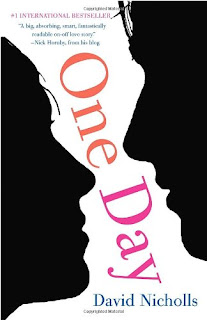
The New York Times released its list of ten best books of 2010 today, and it's no surprise the critics' choice of this year's familiar titles is there. Any annual ranking of "best" writing and writers seems arbitrary and a simple matter of individual choice, even at the Times, although beyond the sales chart it's doubtful James Patterson, Patricia Cornwell, or John Grisham would make a year-end best list.
The responses to the Times list by readers provides an interesting sample of other 2010 books -- here are just five books that didn't make the Times list but were suggested by readers in the article's comments section. It's good to remember that satisfying reading goes beyond best-of lists or sales figures or popular consensus. Any of these can be ordered using the Amazon search-box here -- and with plenty of holiday time ahead to treat yourself to a good book!
Above: The Thousand Autumns of Jacob de Zoet, David Mitchell (Random House): David Mitchell reinvents himself with each book, and it's thrilling to watch. ... In The Thousand Autumns of Jacob de Zoet, he harnesses that plenitude into a more traditional form, a historical novel set in Japan at the turn into the 19th century, when the island nation was almost entirely cut off from the West except for a tiny, quarantined Dutch outpost. Jacob is a pious but not unappealing prig from Zeeland, whose self-driven duty to blurt the truth in a corrupt and deceitful trading culture, along with his headlong love for a local midwife, provides the early engine for the story, which is confined at first to the Dutch enclave but crosses before long to the mainland. Every page is overfull with language, events, and characters, exuberantly saturated in the details of the time and the place but told from a knowing and undeniably modern perspective. (Amazon, Tom Nissley)

The Imperfectionists Tom Rachman (Dial Press paperback): Set against the backdrop of a fictional English-language newspaper based in Rome, it begins as a celebration of the beloved and endangered role of newspapers and the original 24/7 news cycle. ... In The Imperfectionists chaos of the newsroom becomes a stage for characters unified by a common thread of circumstance, with each chapter presenting an affecting look into the life of a different player. From the comically overmatched greenhorn to the forsaken foreign correspondent, we suffer through the painful heartbreaks of unexpected tragedy and struggle to stifle our laughter in the face of well-intentioned blunders. This cacophony of emotion blends into a single voice, as the depiction of a paper deemed a "daily report on the idiocy and the brilliance of the species" becomes more about the disillusion in everyday life than the dissolution of an industry. (Amazon, Dave Callanan)

The Surrendered Chang-Rae Lee (Riverhead): June Han is a starving 11-year-old refugee fleeing military combat during the Korean War when she is separated from her seven-year-old twin siblings. Eventually brought to an orphanage near Seoul by American soldier Hector Brennan, who is still reeling from his father's death, June slowly recovers from her nightmarish experiences thanks to the loving attention of Sylvie Tanner, the wife of the orphanage's minister. But Sylvie is irretrievably scarred as well, having witnessed her parents' murder by Japanese soldiers in 1934 Manchuria. These traumas reverberate throughout the characters' lives, determining the destructive relationship that arises between June, Hector and Sylvie as the plot rushes forward and back in time, encompassing graphic scenes of suffering, carnage and emotional wreckage. Powerful, deeply felt, compulsively readable and imbued with moral gravity, The Surrendered does not peter out into easy redemption. It's a harrowing tale: bleak, haunting, often heartbreaking. (Amazon, Reed)

One Day, David Nicholls (Vintage): The episodic story takes place during a single day each year for two decades in the lives of Dex and Em. Dexter, the louche public school boy, and Emma, the brainy Yorkshire lass, meet the day they graduate from university in 1988 and run circles around one another for the next 20 years. In One Day, Dex becomes a TV presenter whose life of sex, booze, and drugs spins out of control, while Em dully slogs her way through awful jobs before becoming the author of young adult books. They each take other lovers and spouses, but they cannot really live without each other. (Amazon, Reed)

The Age of Wonder, Richard Holmes (Pantheon): Holmes, author of a much-admired biography of Coleridge, focuses on prominent British scientists of the late 18th and early 19th centuries, including the astronomer William Herschel and his accomplished assistant and sister, Caroline; Humphrey Davy, a leading chemist and amateur poet; and Joseph Banks, whose journal of a youthful voyage to Tahiti was a study in sexual libertinism. Holmes's biographical approach makes his obsessive protagonists (Davy's self-experimenting with laughing gas is an epic in itself) the prototypes of the Romantic genius absorbed in a Promethean quest for knowledge. Their discoveries, he argues, helped establish a new paradigm of Romantic science that saw the universe as vast, dynamic and full of marvels and celebrated mankind's power to not just describe but transform Nature. The Age of Wonder is sketchy on the actual science and heavy on the cultural impact, with wide-ranging discussions of the 1780s ballooning craze, Mary Shelley's Frankenstein and scientific metaphors in Romantic poetry. (Amazon, Reed)





No comments:
Post a Comment